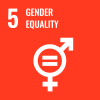Warsaw, 15 May 2023 – Denys is from Kharkiv, Ukraine. He arrived in Poland in March 2022 with his family and two pets. In Ukraine, Denys was a social worker supporting lesbian, gay, bisexual, transgender, intersex, queer, and other sexually or gender diverse (LGBTIQ+) people, distributing HIV tests and assisting them with doctor’s appointments.
Denys was 18 when he decided to speak openly about his sexual orientation with his siblings, and fortunately, he was met with support. This is not always the case for many LGBTIQ+ people, who often may struggle to receive the same love and support when they open themselves up to family and friends.
“I had friends who were rejected by their families and society for their sexual orientation. Many had to leave the country and sometimes even wanted to commit suicide,” Denys recalls.
Since the escalation of the war in Ukraine in February 2022, approximately 1 million Ukrainians and Third-Country Nationals have fled to Poland. Some are LGBTIQ+ people and tend to face multiple additional barriers to accessing safe housing and support services.

Organizations like Lambda are working to make Poland a more inclusive country for LGBTIQ+ people, both local and migrants. Photo: IOM/Alexey Shivrin
Organizations like Lambda, a Polish NGO operating in Warsaw, offer much-needed support to LGBTIQ+ people fleeing Ukraine. Lambda has worked in Poland since 1997 and supports gay and transgender people with legal advice, psychological and social support. It also organizes social and networking events for the LGBTIQ+ community. The International Organization for Migration (IOM) in Poland has partnered with Lambda since August 2022.
“These people very often experience double stigmatization. Not only are they foreigners in a new country, but they also belong to the LGBTIQ+ community. So, together [with IOM], we are building a safe space for them,” says Krzysztof Kliszczyński, Director of Lambda.
Since August 2022, Lambda, in partnership with IOM, has assisted over 900 people who fled the war in Ukraine. Every year, the NGO helps between 4,000 and 5,000 LGBTIQ+ people of various nationalities across Poland.

Denys talks to IOM Poland staff. Photo: IOM/Alexey Shivrin
Svetlana Dubova, a psychologist from Kyiv, Ukraine, working for Lambda, says her patients often experience different degrees of discrimination depending on where they are based, with larger cities being more tolerant.
“People feel fear, and the LGBTIQ+ community themselves do not feel supported. This makes it difficult for people to express themselves,” Svetlana says.
“The psychological help is crucial, as very often [LGBTIQ+] people, especially trans communities, are heavily discriminated against. They can be fired because of their [gender] identity or even blackmailed and threatened,” Denys adds.
Over the years, Lambda has recorded an increase in acceptance of LGBTIQ+ people across Poland. “After 25 years of working for Lambda, the mood is changing for the better, and identifying as gay in Poland is becoming more widely accepted,” Krzysztof remarks.

Denys is leading board game evening in Warsaw. Photo: IOM/Alexey Shivrin
Thanks to these continuous social integration activities and the tireless efforts of organizations such as Lambda, the LGBTIQ+ community slowly feels more and more welcome into Polish life and society. This creates a safer environment for gay, trans, and other gender and sexually diverse people coming from Ukraine.
According to those who fled the war in Ukraine and now live in Warsaw, there was almost no tolerance towards LGBTIQ+ people in their country, particularly from older generations. When they held hands on the streets, they were faced with hostility.
Denys believes that things have changed after the war in Ukraine began. “People got more united once the war started. Nobody cares who you are sleeping next to when you serve in the army,” he says, hoping things will stay like this after the war ends.
If you are an LGBTIQ+ individual who needs support in Poland, please get in touch with Lambda.
IOM’s partnership with Lambda was made possible thanks to generous support from the US Department of State, Bureau of Population, Refugees, and Migration.
Text by Ewelina Kawczynska, IOM Poland Public Information Coordinator.



